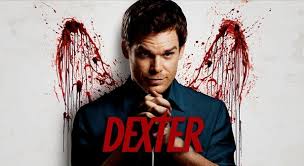What is the goal of a writer? First and formost to tell a good story. A great story if possible. Yet it goes way beyond that – even the worst dullard can excite an audience if the events he describes have an emotional connection to the listener. So what is it that makes one novel stand out from another? What is it that gets a reader’s motor humming and keeps them turning the page? Well written prose.
I’ve been a fan of classic literature since I was a child. I got hooked on ‘Classic Illustrated Comics’ from the time I started to read and eventually went on to read these same stories as novels. One thing you can say about the greats like Alexandre Dumas, Robert Louis Stevenson, Jane Austen, Daniel Defoe, J.R.R. Tolkien, Harper Lee, George Orwell, Charles Dickens, John Steinbeck, Mark Twain, Ernest Hemingway, Sir Arthur Conan Doyle, Ray Bradbury, Edgar Allen Poe and others is that aside from delighting with great stories, they could also turn a phrase with a level of class and elegance that is way beyone the capabilities of many genre fiction writers today. Although I don’t consider myself a genre fiction writer, I lump myself into that group of authors struggling to zap life into my prose – much like Dr. Frankenstein trying to give life to his creation.

It may be the very nature of genre fiction that holds so many back. Genre fiction inherently deals with a series of events. A writer may find himself stringing together sentence after sentence with ‘and then’ ‘after that’ ‘later’ ‘when’ and ‘at five o’clock(s)’ without ever scratching the surface of the human condition or digging deep into the depth of characters or motivations. I have read much of this style of writing and while the best of it may entertain, very little of it makes me think.
This is my current challenge.
I am in the process of writing a novel based on my experiences during high school. Wouldn’t it seem fake to wax philisophical in the middle of gym class? What possible reason could a writer have to haul out the type of vocabulary that might spice up a novel if the genre only calls for teenage lingo?

This is not to say that one is better than the other. Genre fiction vs. Literary fiction. In my opinion the best writing out there finds a balance between action and elegance. I have read a mountain of Robert B. Parker and Stephen King. I’d hazard a guess that most people would agree that their merit lies in telling a great story, plotting and character developement. Is their prose weak? No. It’s very workable, modern, at times lyrical and on the odd occasion slick. But it’s not the work of the masters.
Writers who I consider to be genius are Larry McMurtry, Cormac McCarthy, Yann Martel, James Carlos Blake, Alice Walker, Charles Frazier, Paulo Coehlo, Anne Rice, David Morrell, Khaled Hosseini, Laura Esquivel – there are others. Within the genre fiction world I feel that Dean Koontz is a very under-rated author as he always finds a balance between a good story and flowing, elegant prose.

So this is the twists and turns my brain are taking these days.
Add to that another untried concept. My previous writing has been planned. I use ‘Free Mind’ to chart the flow of my story and then drop these descriptions into my word document. I usually plan out chapters and know where my story is going. This time I am winging it. I’ve done that for short stories – my collection ‘Mexican Mutts, Tequila Pups and Chili Dogs’ was written this way but none of those stories went beyond 20,000 words. This time I have no plan except that which is coming together in my head.
As an added challenge, I am writing the first draft ‘free hand’ – in other words, no computer. And yet another great challenge / obstacle, I am writing the first draft on public transportation on my way to and from work. Time contraints demand that I take advantage of my wasted time. This actually has worked out very well. Especially if the bus or subway isn’t too busy. I can get three chapters done per week this way.
So all in all I have been learning a lot about the craft, have been asking a lot of questions and hopefully will find the answers before I am ready to publish this new novel. I expect to do a lot of ‘Waxing Philosophical’ during the editing process. I need to address the deeper issues that lie under the surface of the high school experience. With any luck, that will spawn something elegant and memorable.
David Gordon Burke
Find my books here.









